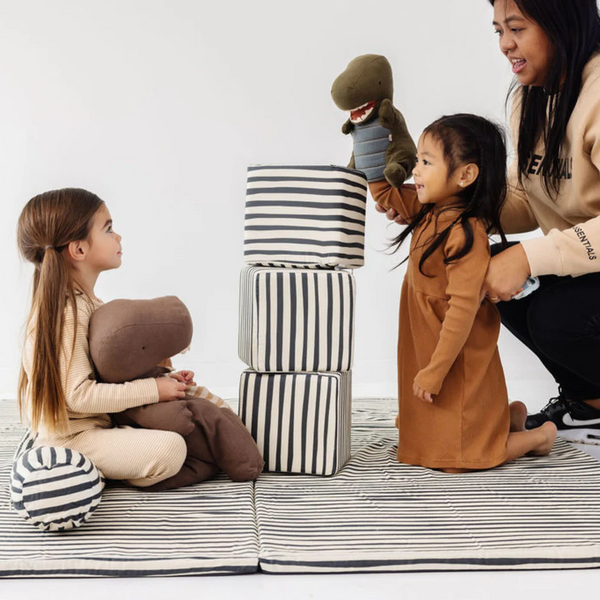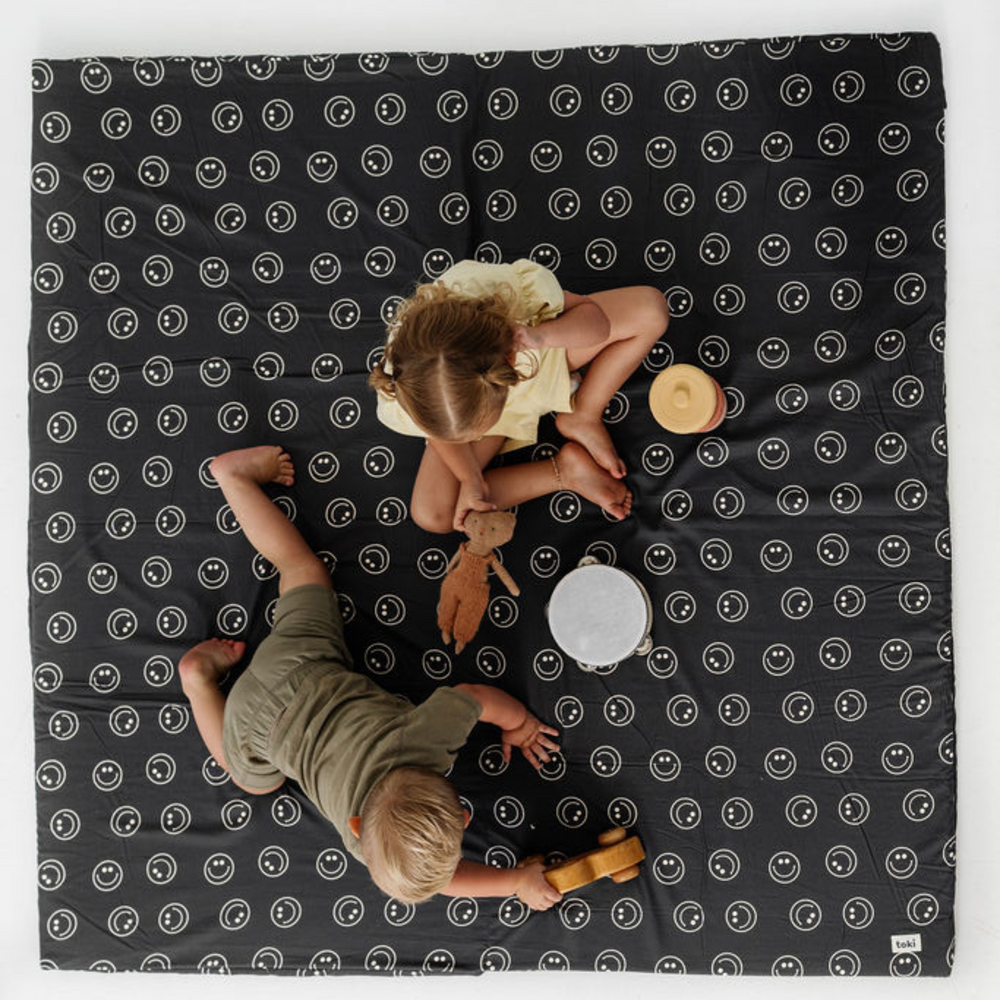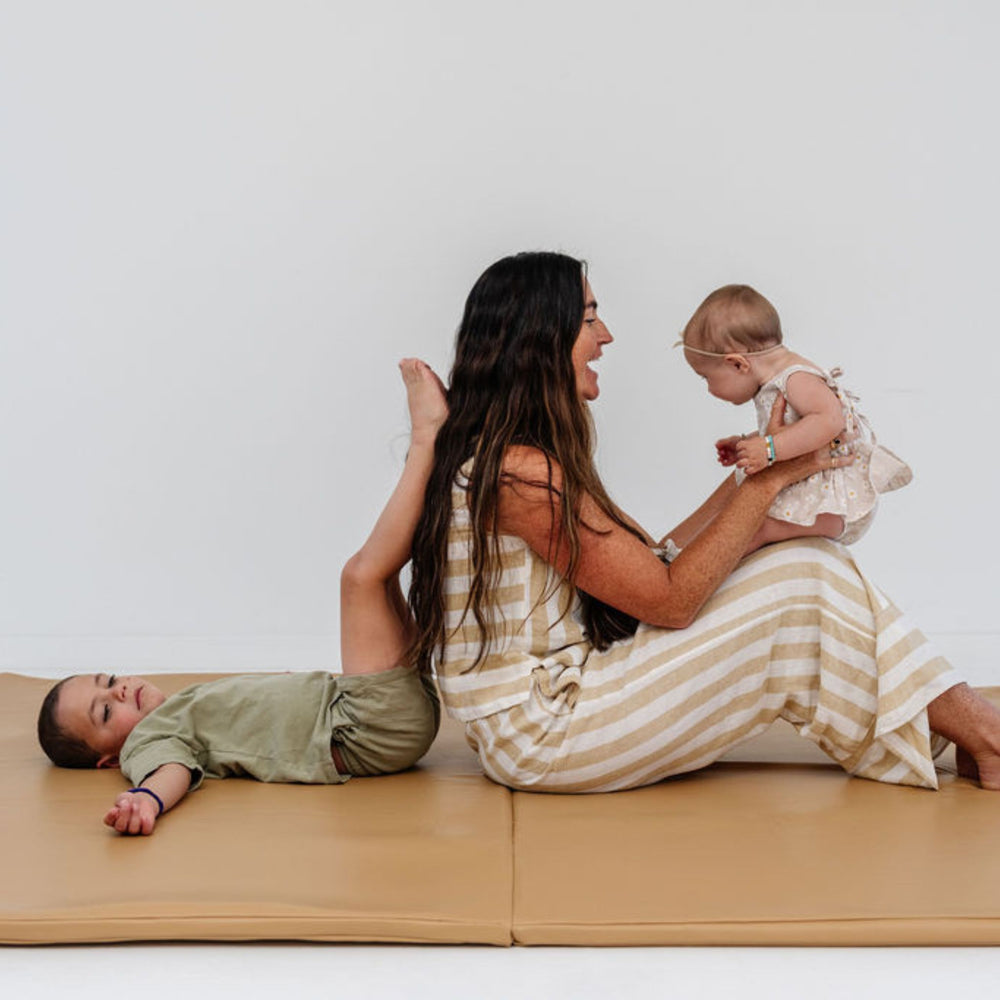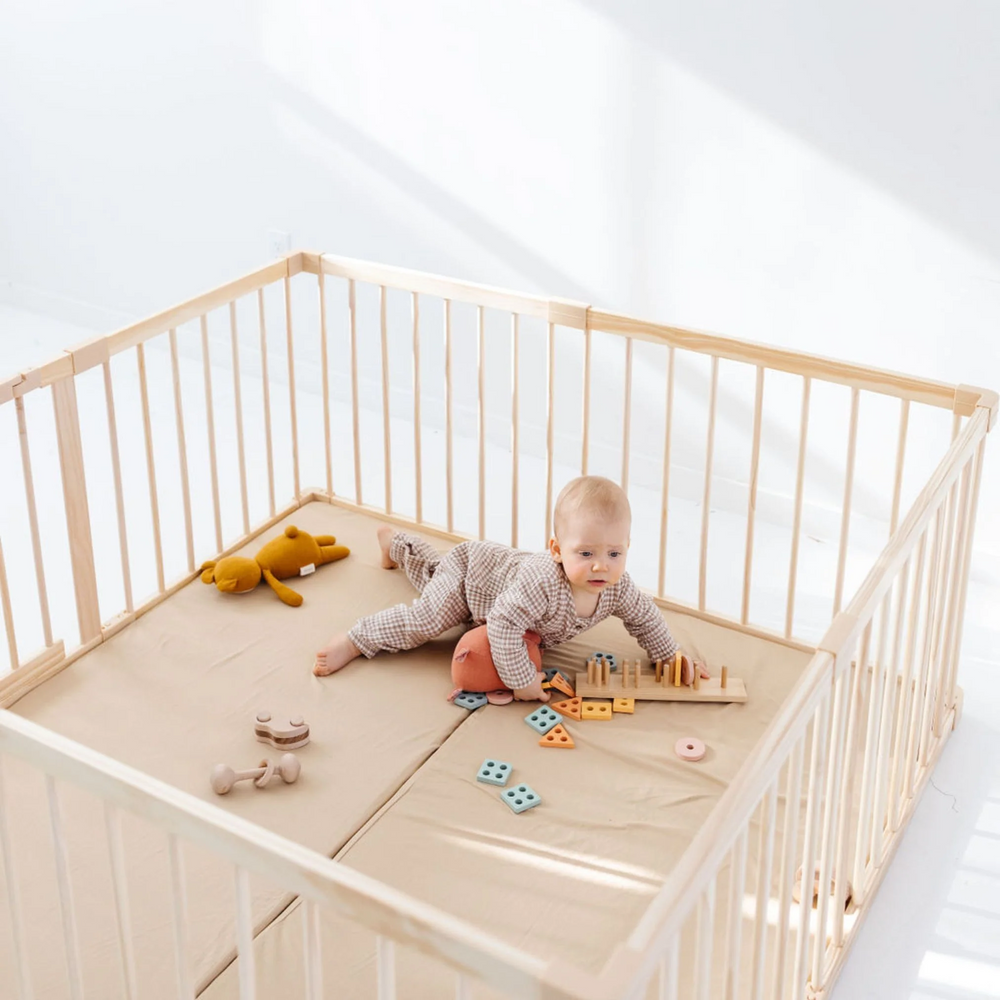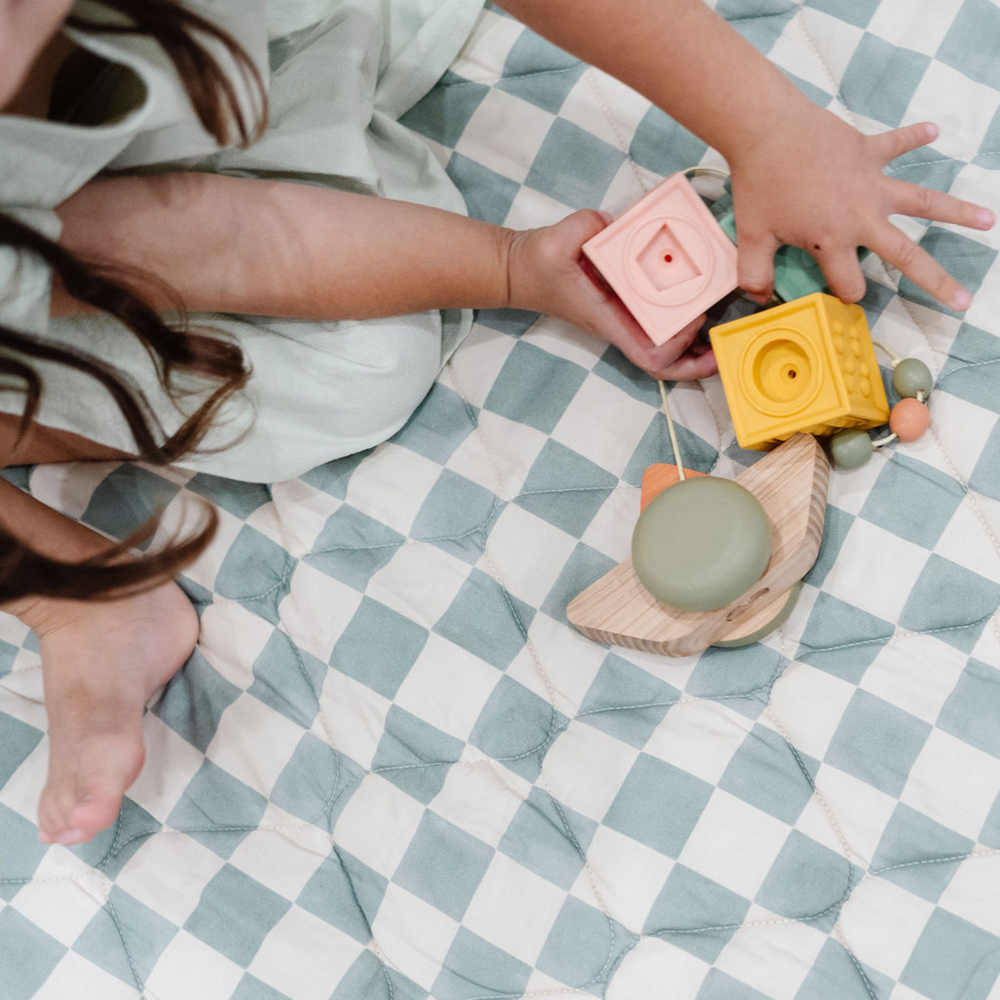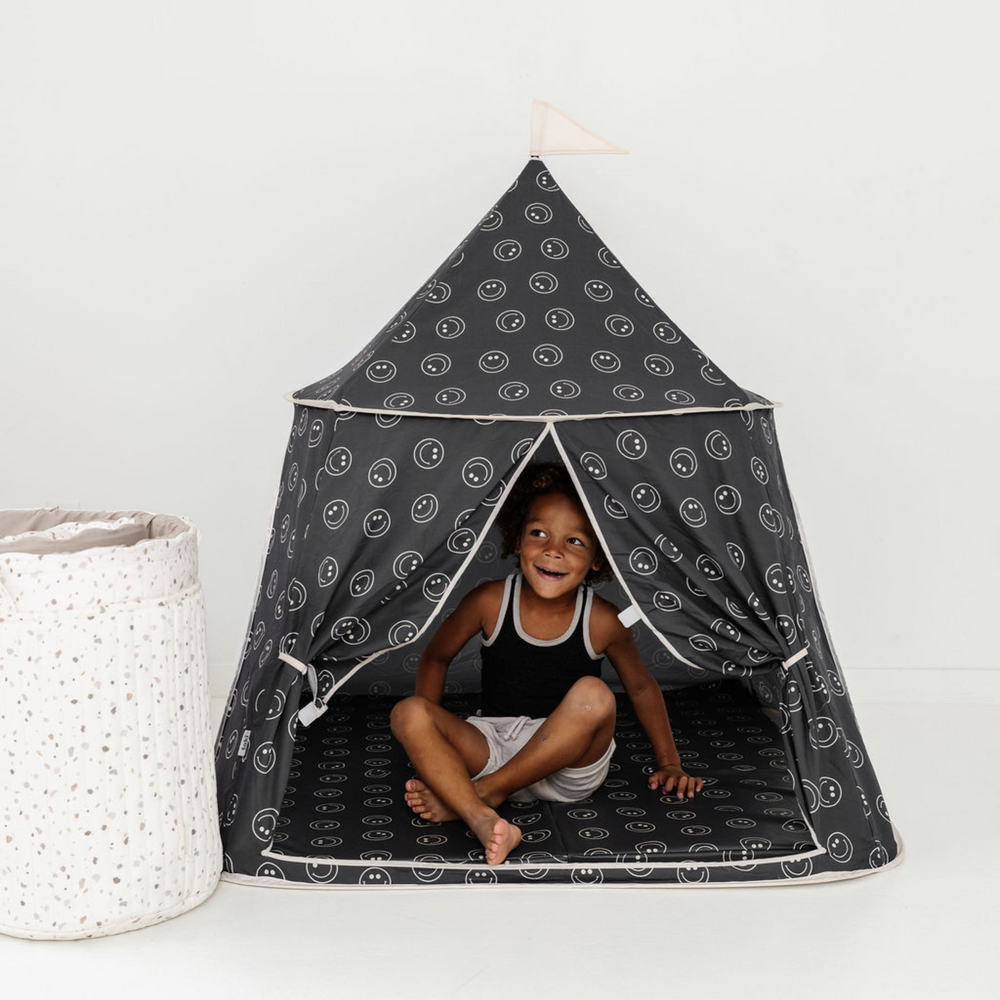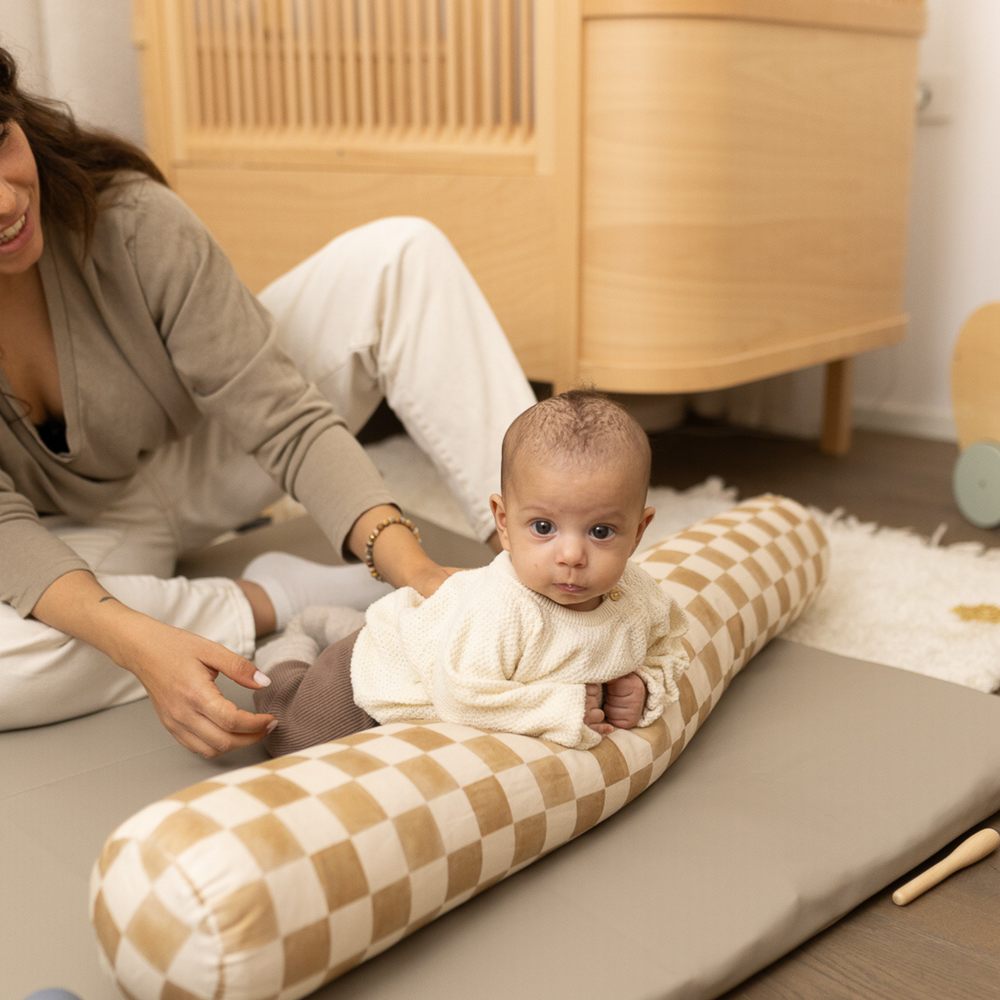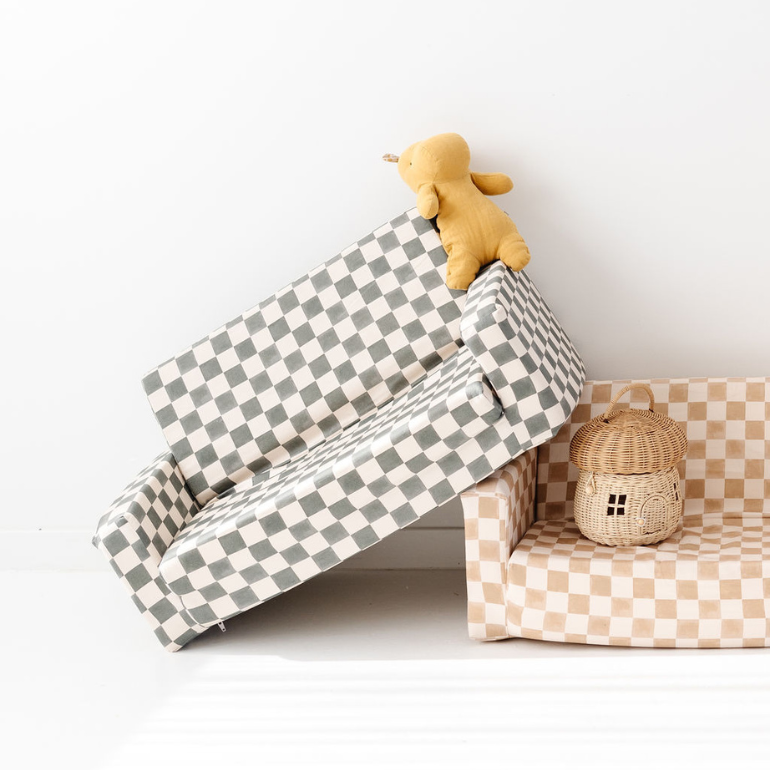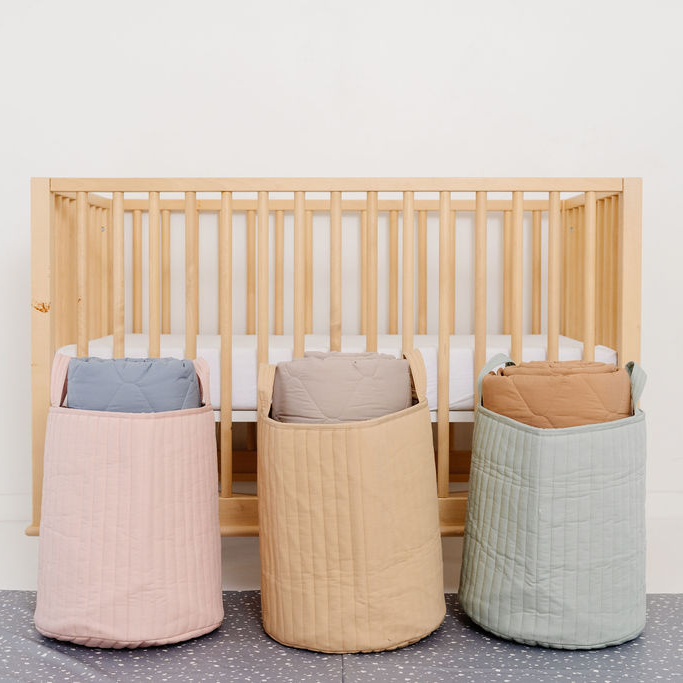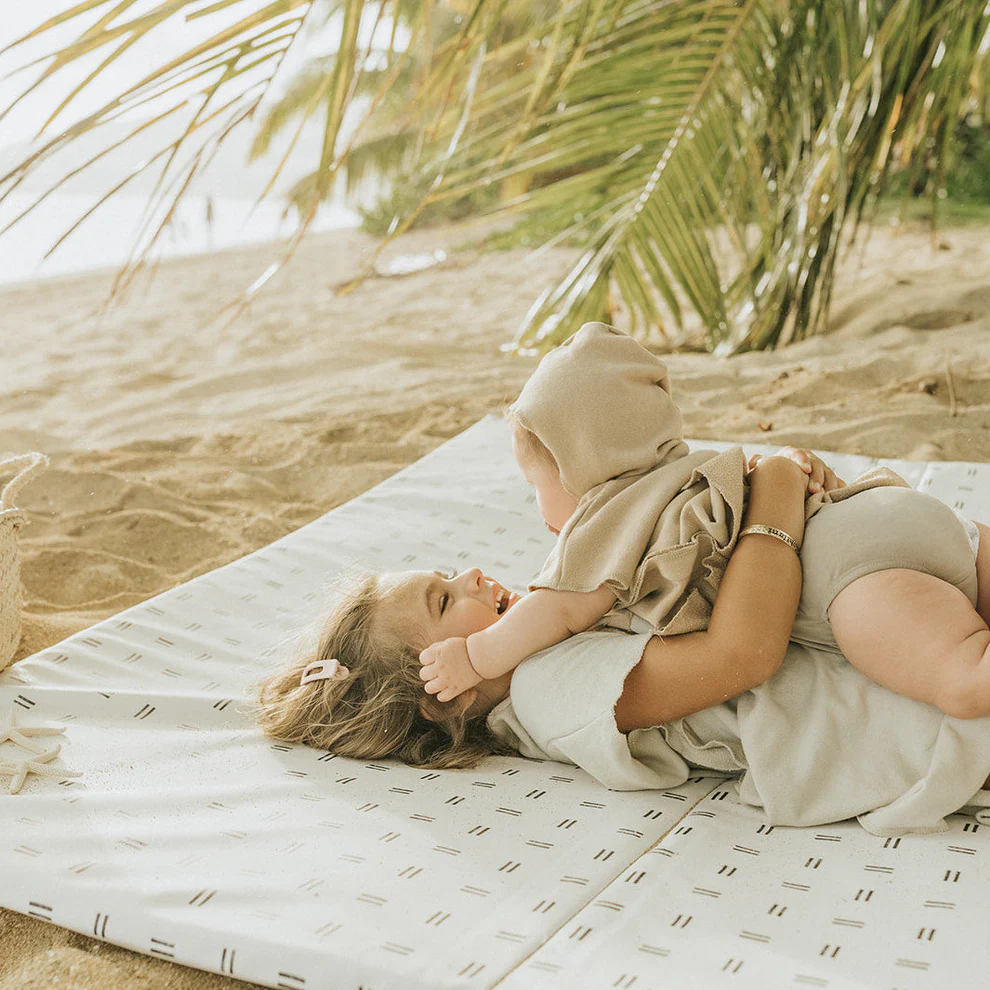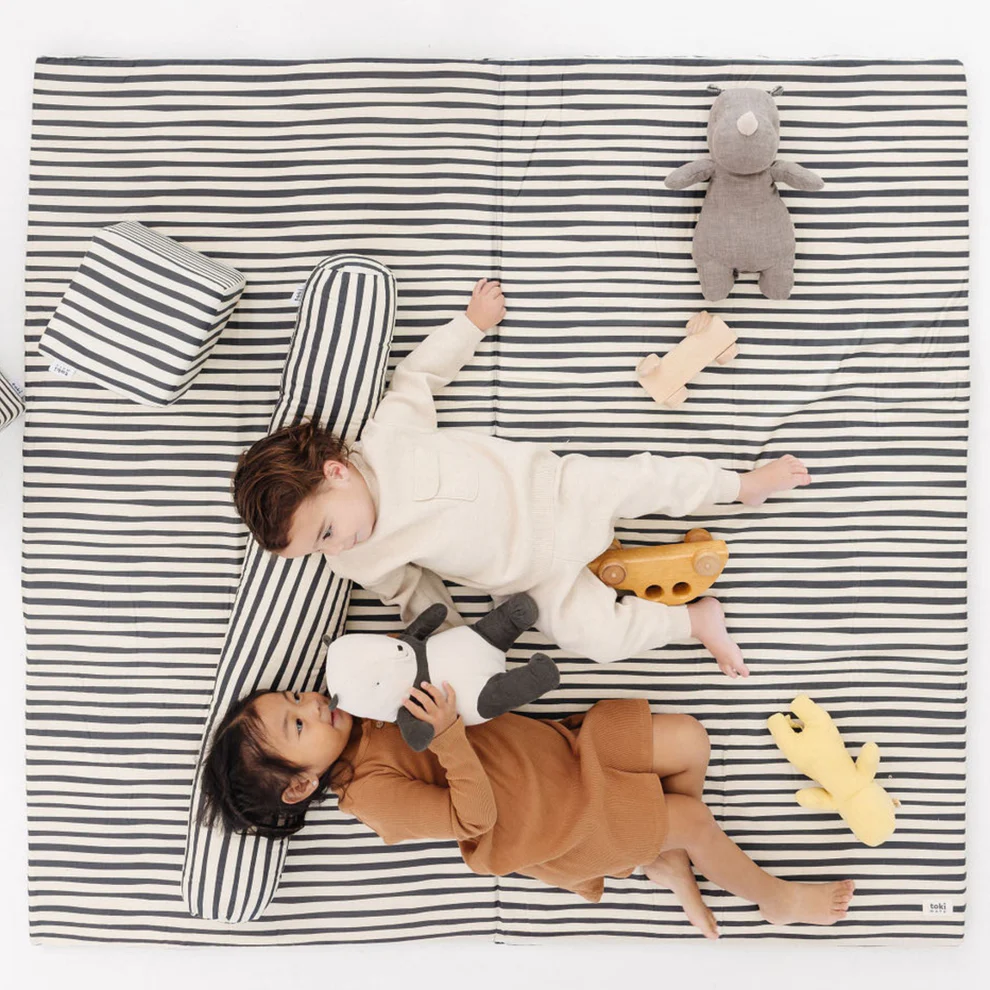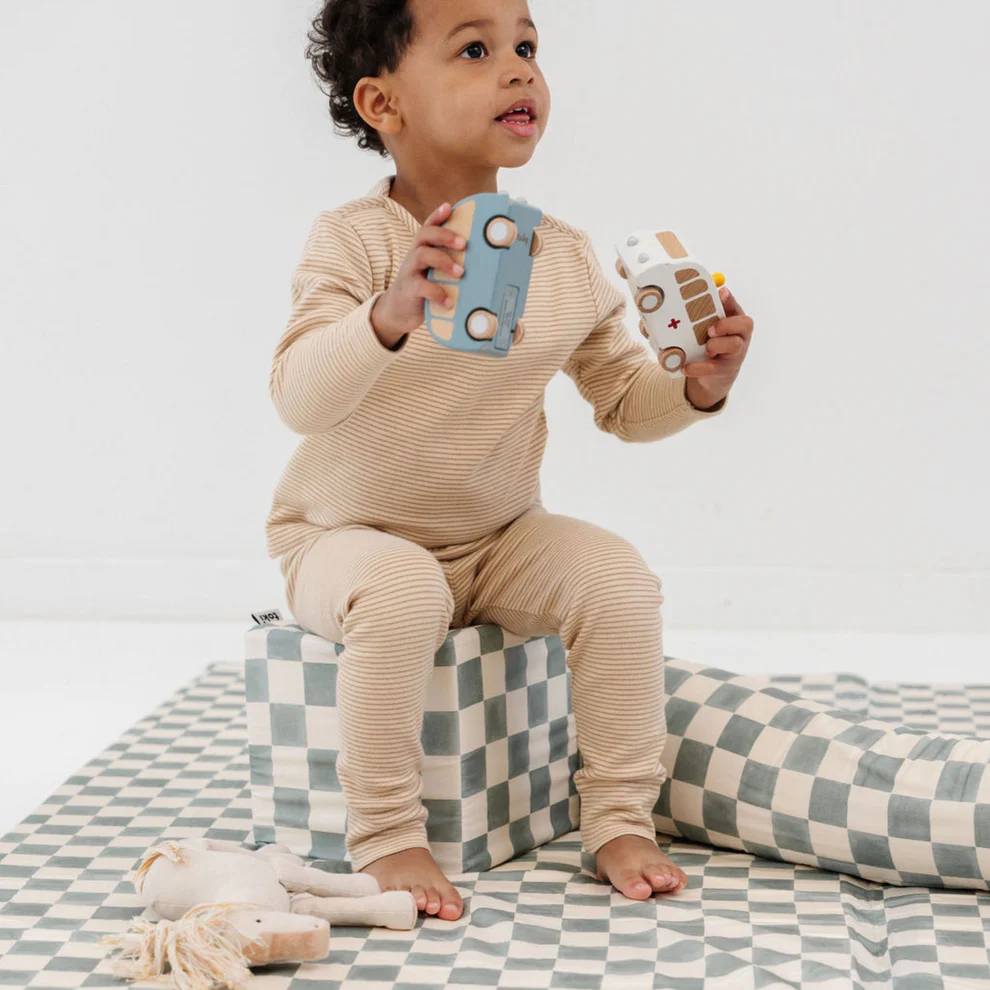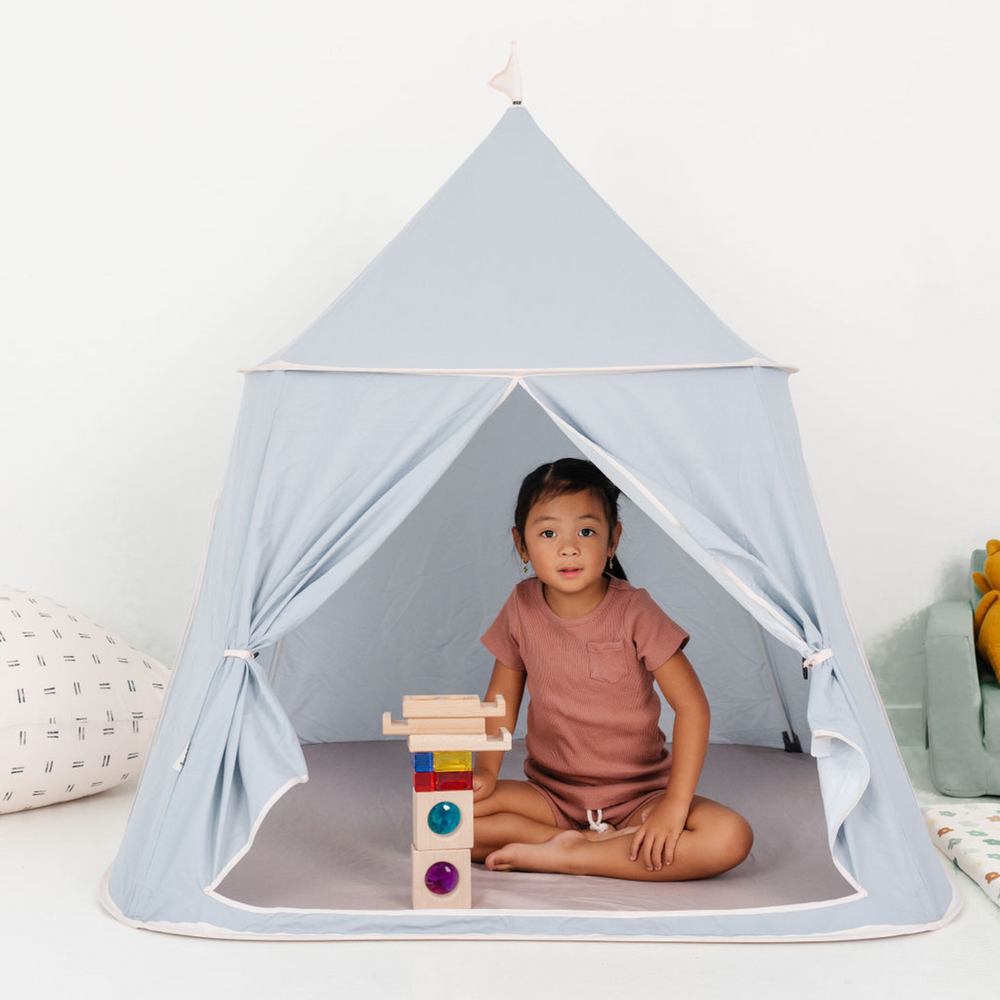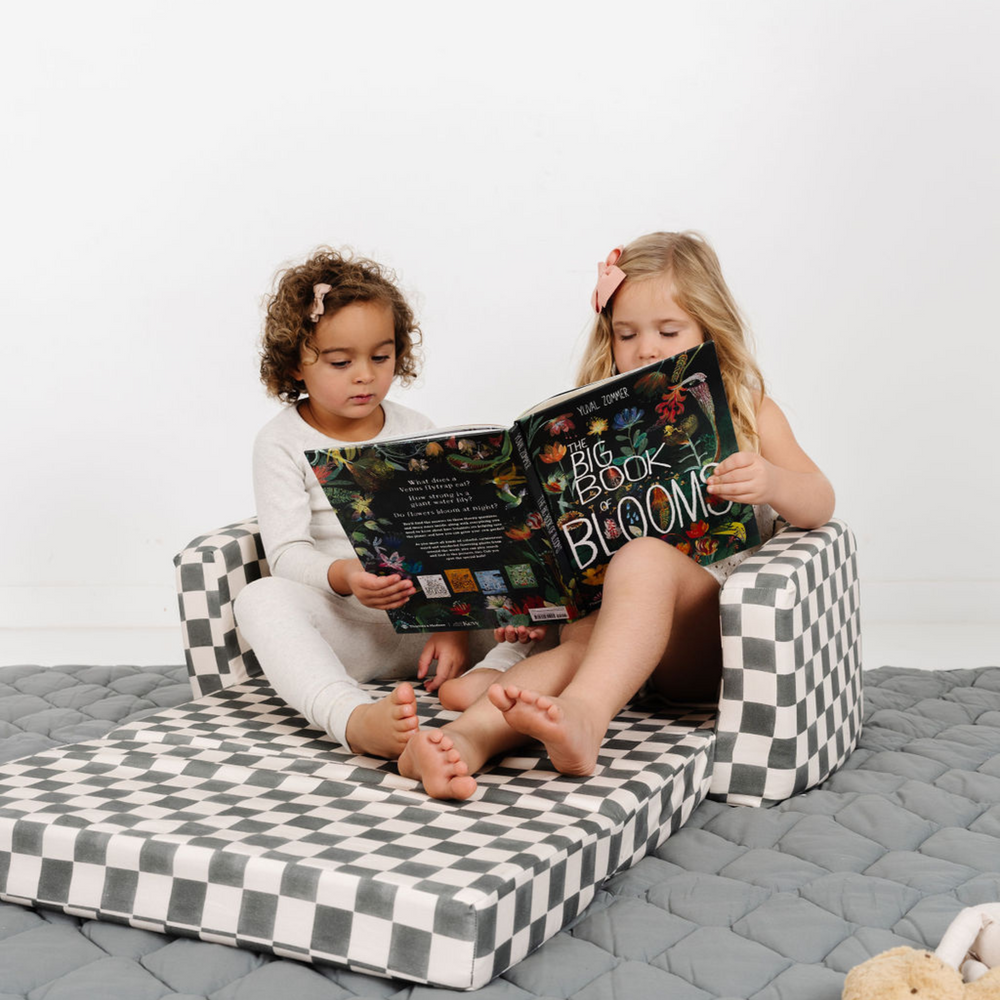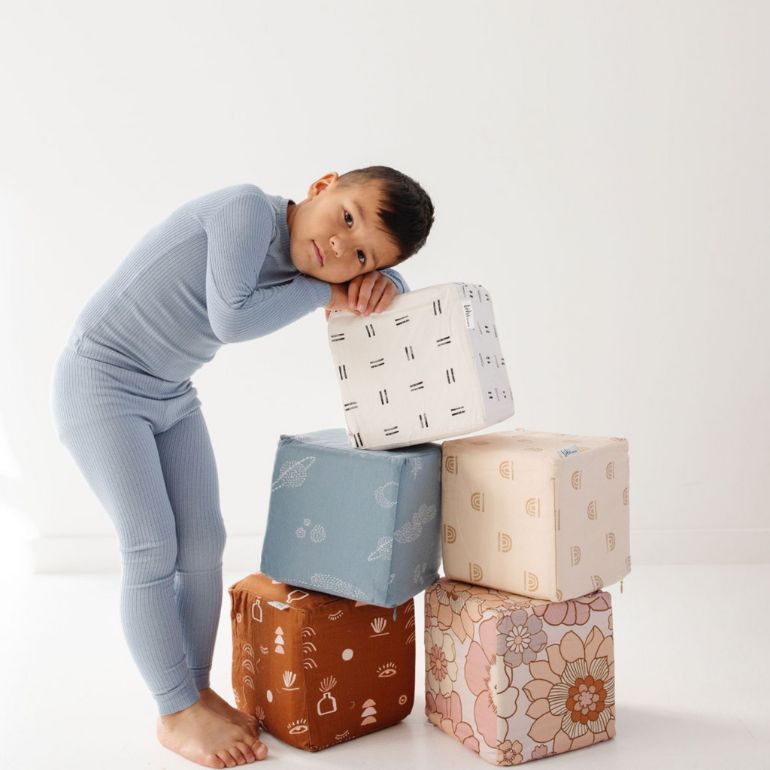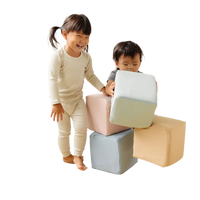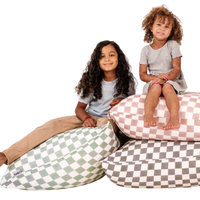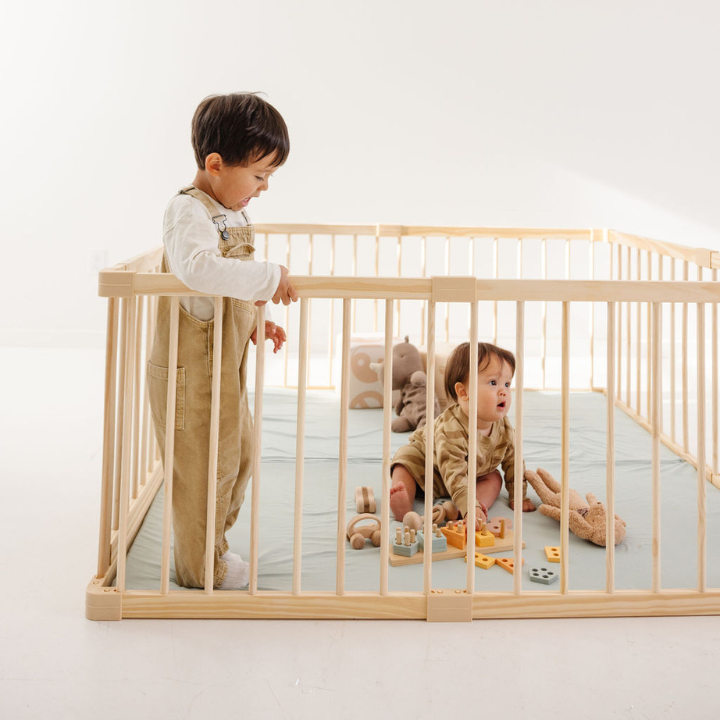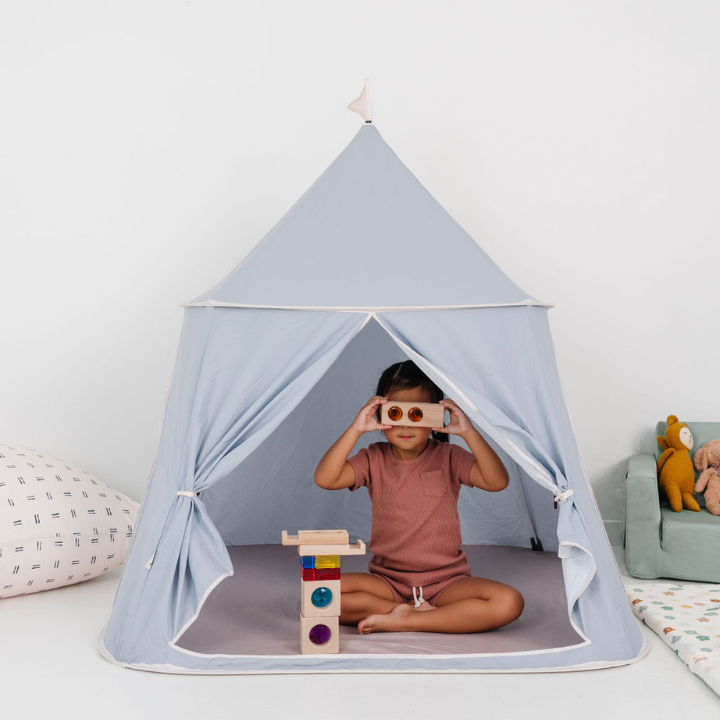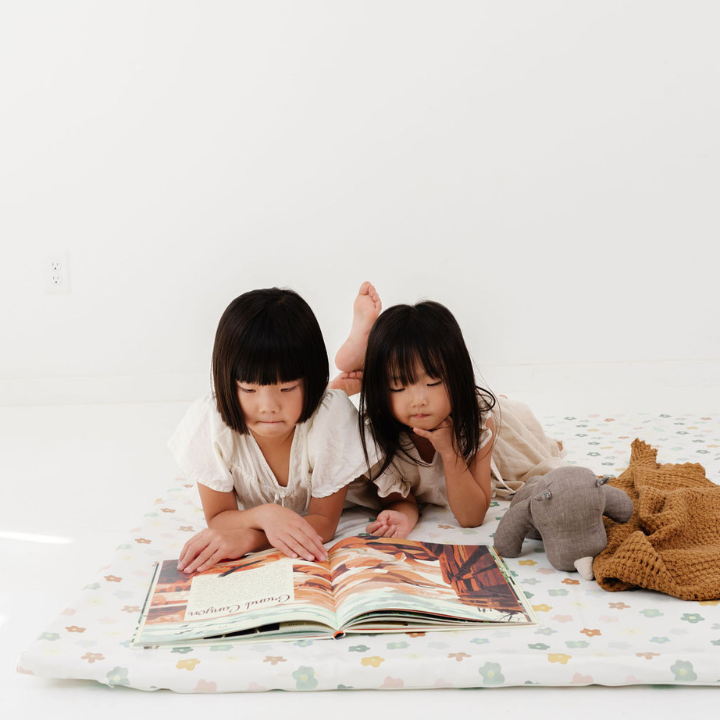5 Myths About Playtime for Kids
June 9, 2025
We all know that play is an essential part of your child’s development, but what exactly does “play” entail? While adults typically view play as something structured—such as a game with a set goal—children are much more creative and open-minded. As they explore the world around them through play, they develop critical thinking skills, build social and emotional skills, boost their language development, strengthen their bodies, and more. Play is serious business, so let’s debunk these 5 common misconceptions about playtime for kids:
Myth #1: Newborns can’t play
It might seem like newborns don’t do much except eat or sleep (or go through diaper after diaper), but their brains are actually hard at work, building over a million new neural connections every second. With their brains developing at a breathtaking speed, newborns are constantly taking in new information through their senses. They may not yet be playing with toys, but they’re paying close attention and learning through every interaction.
To play with your newborn, lay them on a soft play mat, where they can look up at your face, and then sing or talk to them. You can also make faces or sounds, smile, and play peekaboo with them. Face-to-face play is a powerful tool for bonding, as well as supporting their social, language, and cognitive development. You can also use a toy, like a rattle or anything that captures their attention, for them to focus on and track.
Even newborns need tummy time! You may begin tummy time from their first day of life, using their play mat or your chest for them to lay belly-down while awake. This helps strengthen their neck, shoulders, and trunk to build the necessary muscles for all gross motor skills.

Myth #2: Play should be structured
Structured play is great for helping children develop specific skills, but it’s not the only type of play that’s beneficial. Unstructured play, or open-ended play, allows little ones to make choices, take risks, be creative, and be independent. It allows them to play without feeling like there’s a right or wrong way, and is great for building their self-esteem. Open-ended toys, like a play tent, grow with your little one through different stages and can also extend independent play for longer periods.
Myth #3: Play isn’t educational
Play has enormous learning and social benefits for children of all ages—so much so that play-based learning is a powerful educational approach that has gained recognition in early education programs. Through purposeful play, children learn academic skills, as well as social, emotional, and cognitive skills. Research shows that play-based learning can actually be more effective than direct instruction at improving math skills, shape knowledge, and task switching.

Myth #4: Toys are necessary for play
While toys can be a valuable tool for enrichment and entertainment, they’re not strictly necessary for play. Everyday household objects, like toilet paper rolls, wooden spoons, pots, and more can be just as engaging in arts and crafts or imaginary play. Depending on your child’s age, you can use the couch, chairs, blankets, and pillows to build a fort together or play imaginary games like “The Floor is Lava.”
Myth #5: Kids need to be constantly entertained
In a fast-paced world with instant gratification, being bored can be uncomfortable. When parents let their children be bored, they can feel like they’re not doing enough or doing a good job parenting. But the truth is that it’s actually okay for kids to be bored, and that it can help them develop valuable skills like patience, emotional regulation, problem solving, and creativity.
If your little one is complaining of being bored, collaborate with them to decide on something to do. They can color or create something indoors, or play outside with supervision. Lay a picnic blanket out on the grass for a stuffed animal picnic or tea party that’s fully directed by them. Encourage them to find leaves, rocks, flowers, and other things in the backyard for a fun nature hunt that gets them moving and occupies their attention.


Shop the blog
Blooms Play Tent
$135 - $135
An easy-to-assemble, easy-to-store pop-up tent that’s home base for your child’s fantastic adventures.
Shop Now
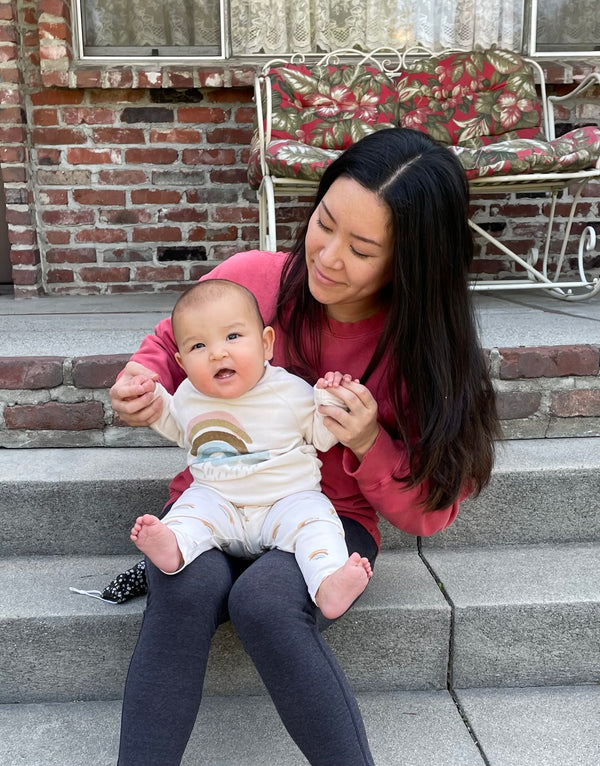
About the Author: Alice
Alice Mendoza is a copywriter and blog writer based in Los Angeles. She began writing for a baby brand while on maternity leave, and realized she had found her niche. Today, she writes exclusively within the baby space, using her BFA in Creative Writing and her own experience as a mother to guide her. When she’s not working, you can find her chasing down her toddler, going on walks around the neighborhood, or watching reality TV.
